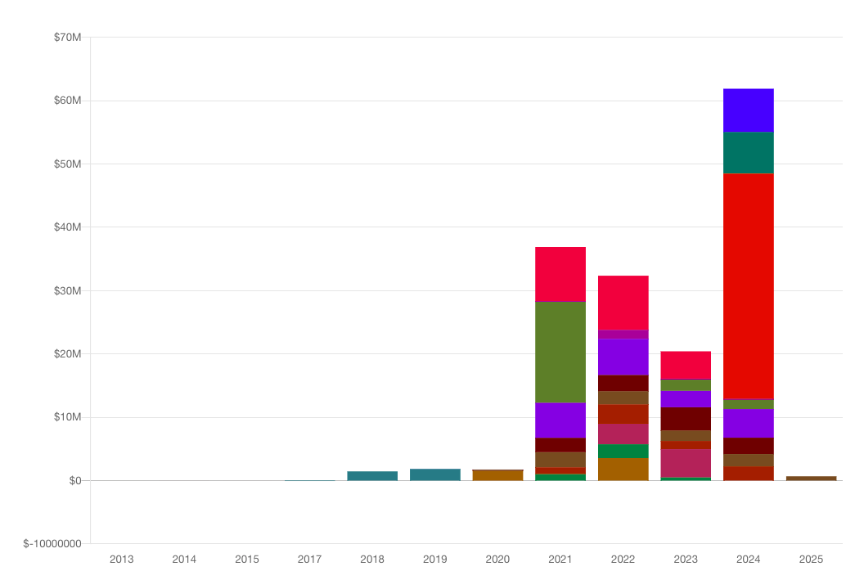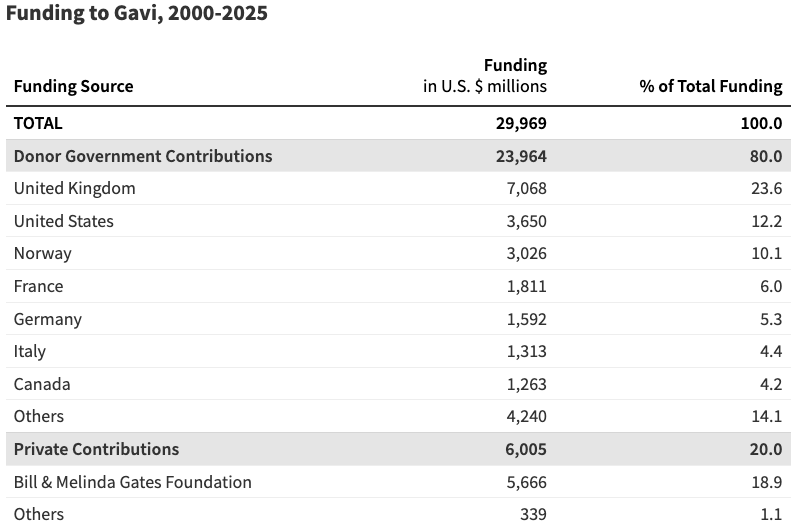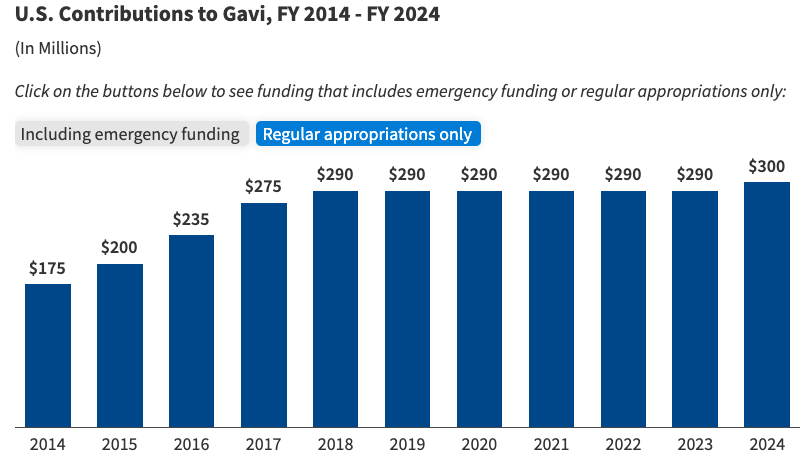 Gavi covers Sh6.5 billion of Kenya's annual vaccine bill, leaving a
balance of Sh5.08 billion for Kenya to foot.
Gavi covers Sh6.5 billion of Kenya's annual vaccine bill, leaving a
balance of Sh5.08 billion for Kenya to foot.
Kenya needs to raise at least Sh5 billion to support vaccination of babies against killer but preventable diseases this year.
This is according to a new assessment by the Ministry of Health.
Such diseases include polio, measles, pneumonia, tuberculosis and diphtheria.
The ministry’s report, titled Impact of the United states government Stop Work Order, explores the impact of the US government funding freeze on Kenya’s health system between January 20 and March 10, 2025.
The US did not exempt Kenya’s immunisation programme from its funding freeze.
The Ministry of Health (MoH) said that in total, Kenya requires Sh11.58 billion to cover immunisation every year.
“Vaccination efforts, coordinated by Kenya Expanded Programme on Immunization, draw on funds from the Government of Kenya, GAVI, and US Government,” the MoH brief says.
Gavi covers Sh6.5 billion, leaving a balance of Sh5.08 billion for Kenya to foot.
However, the Kenya government contributes only Sh2 billion, and gets Sh585 million donation from the US government every year.
This leaves a funding gap of Sh2.5 billion, which will increase when you take away the direct US support.
The ministry complained that, sometimes, the Kenyan government struggles to fulfil its own Sh2 billion obligation.
“With the government yet to fulfil its pledged contributions, the immunisation program risks falling into a critical shortfall, which could undermine nationwide efforts to prevent vaccine-preventable diseases,” the ministry said in its brief.
Gavi, the Vaccine Alliance (Gavi), is a Geneva-based body launched in 2000 to help poor countries access critical vaccines through financial support, technical expertise, and negotiations with manufacturers for low prices.
Kenya has received more than $1 billion from Gavi since the year 2000.
Gavi gave Kenya more than $60 million in 2024, the highest ever in a single year, mostly because of the Covax funding for Covid-19 vaccines, which has been axed.
Gavi support to Kenya is expected to reduce further this year after it was revealed on Wednesday that the US government was also pulling its funding, around $300 million annually, from Gavi.

The information came from documents that the Usaid and shared with Congress earlier this week, listing international aid programs that will be dismantled as well as those that would be retained.
Among the new programmes terminated are all funding to Gavi, the UN Food and Agriculture Organization, and many projects to fight malaria.
Gavi responded to the US pull out on Wednesday.
"If we don't get US support, that translates into 1.2 million deaths [globally]" over the next five years, among children who will be unprotected against deadly diseases like measles and diphtheria, said Gavi chief executive Sania Nishtar, according to Reuters.
The US covers 13 per cent of Gavi’s budget.
In a post on X on Wednesday, Gavi implored on the US to rethink its decision.
“USA support for Gavi is vital. With US support, we can save over 8 million lives over the next five years and give millions of children a better chance at a healthy, prosperous future.”
Gavi said its board chair José Manuel Barroso and its CEO Sania were travelling to the US to negotiate with American authorities to restore the funding.
If that does not happen, it will be forced to scale down some of its operations, which might affect country beneficiaries such as Kenya.
Gavi had already began cutting its funding to Kenya every year because Kenya’s Gross National Income of US$1,710 in 2021 crossed the Gavi’s eligibility threshold of US$1,660.
The Star Health &Science obtained a letter that Thabani Maphosa, Gavi’s Managing Director for Country Programmes Delivery, wrote to former CS Susan Nakhumicha on November 23, 2023, making that announcement.
He said Kenya was now in an “Accelerated Transition Phase” where Gavi would reduce its support gradually until 2029.
“Kenya will remain eligible for Gavi support till the 31 December 2029 and is expected to be fully self-financing in 2030,” he said.
“If Kenya’s rolling three-year GNI per capita average remains above the eligibility threshold throughout the coming years, then Kenya will be required to fully finance all co-financed vaccines by 2030.”



![[PHOTOS] Ruto shares a glimpse into his farming passion](/_next/image?url=https%3A%2F%2Fcdn.radioafrica.digital%2Fimage%2F2025%2F03%2Fc3d9d9f8-3051-457e-93bf-e70e6d01b60a.jpg&w=3840&q=75)

